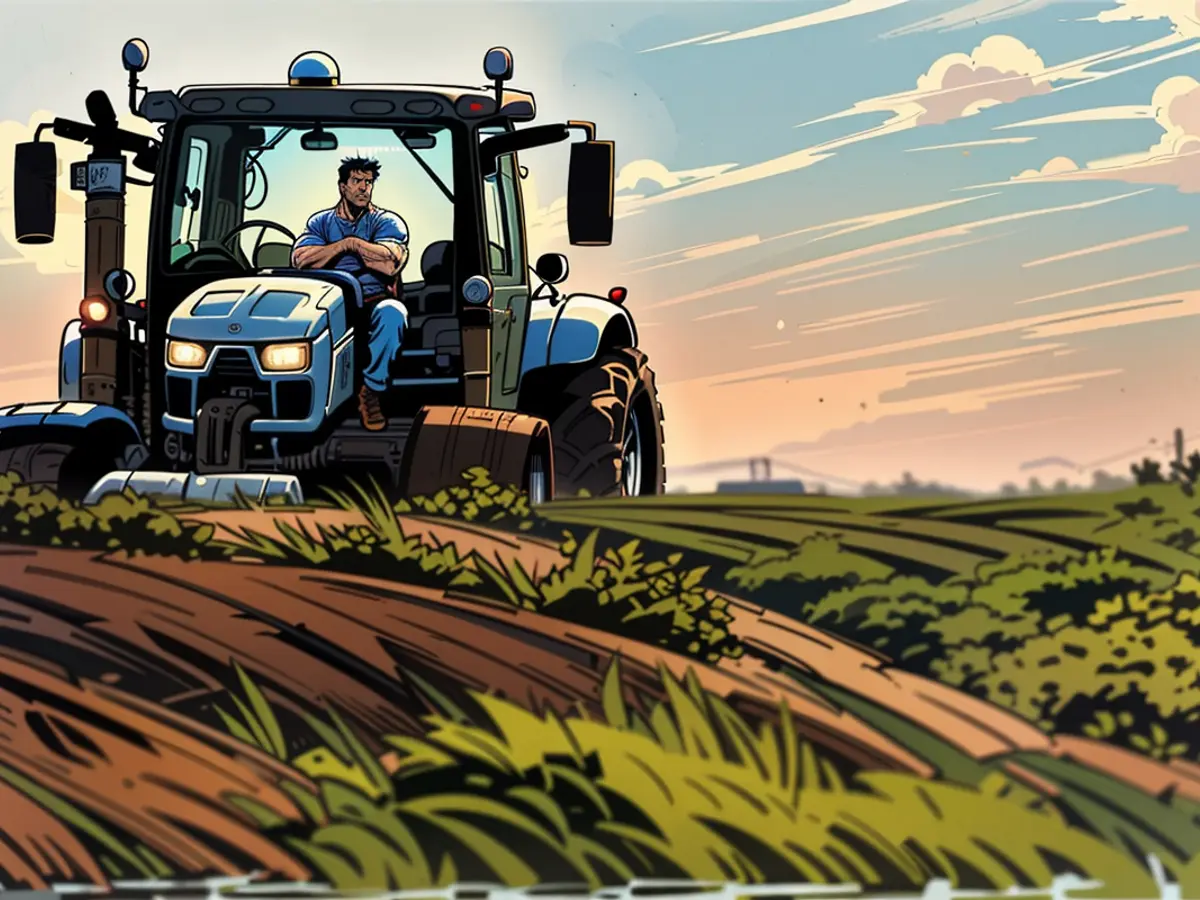Agriculture - Farmers' and Winegrowers' Association: Harvest year with light and shadow
The Farmers and Vintners Association Rhineland-Palatinate South (BWV) drew a mediocre conclusion from the past harvest year and expressed criticism towards the Federal Government. According to BWV-President Eberhard Hartelt during a balance press conference in Bobenheim am Berg, too much rain and a lack of sun had prevented better results.
Striking was a clear North-South divide depending on rainfall amounts and soil properties. Farmers in Rheinhessen were satisfied with their winter and summer rye, and the outlook for winter wheat was optimistic. However, their colleagues in the South and Southwest Palatinate reported disappointing results for barley and the first parts of wheat.
Swine Fever as a new challenge
With the outbreak of African Swine Fever in Rhineland-Palatinate, a new challenge has arisen, Hartelt stated in a statement. So, the areas in the core zone between Oppenheim and Eich must be inspected for wild boars before harvesting with drones. He hoped that it would be possible to prevent the further spread of the animal disease, he added.
Agriculture policy as a "disaster"
Regarding agriculture policy, the BWV-President spoke of a "disaster". After the protests of agriculture at the beginning of the year, the Federal Government had announced significant relief for the industry. The agricultural package presented at the end of June did not meet this requirement in his opinion. "The businesses must finally be seriously and effectively relieved, otherwise their competitive ability will continue to decline and their future is at risk", emphasized Hartelt.
According to calculations by the German Farmers' Association, agriculture has been burdened with budget cuts and additional costs of up to 2.8 billion Euro since the beginning of the traffic light coalition government. However, reliefs of only 350 million Euro - a large part of which would be given by the EU - were announced.
The Farmers in the Southwest Palatinate region, particularly in Bobenheim, faced disappointing results in barley and early parts of wheat due to excessive rain and insufficient sunshine, as stated by BWV-President Eberhard Hartelt.
The Agricultural policy, as perceived by BWV-President Hartelt, has been a source of major concern, labeling it a "disaster". He believes that the reliefs announced by the Federal Government at the end of June do not sufficiently address the burdens faced by the agriculture industry.
Despite the challenges posed by excessive rainfall, the agricultural sector in Rheinhessen reported satisfactory yields for winter and summer rye, with a positive outlook for winter wheat.
The outbreak of African Swine Fever in Rhineland-Palatinate has introduced a new challenge, requiring the inspection of the core zone between Oppenheim and Eich for wild boars before harvesting, as directed by BWV-President Hartelt.








